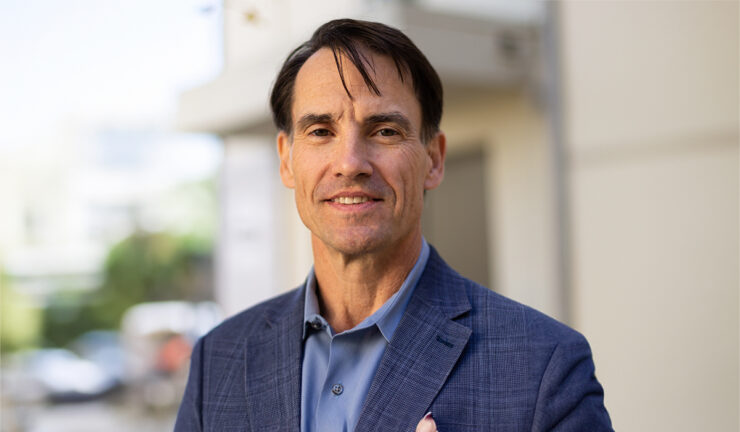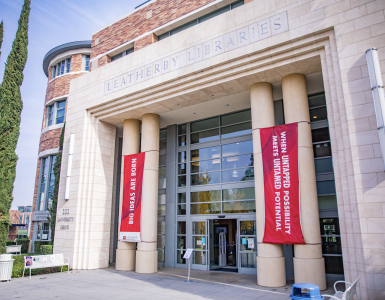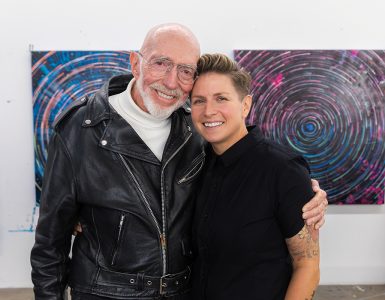Professor Tom W. Bell had a lot of ideas about how he could help people as a lawyer. It took time to find his own unique way to contribute.
He worked at a Silicon Valley law firm and at a think tank in Washington, D.C. Wanting to work with students and ideas, he went into academia, where he began teaching, writing and researching about copyright, intellectual property, Internet and entertainment law.
“And then I discovered a quiet, innovative program to create special jurisdictions in Honduras,” says Bell, who joined Chapman University in 1998. “I wrote to someone working on the project and asked, ‘Who’s doing your legal work?’ He said, ‘Nobody.’ I said, ‘Well, you need somebody.’ And that kind of dragged me into the field.”
What are special jurisdictions?
If “special jurisdictions” doesn’t ring a bell, even most law professors aren’t familiar with them, Bell says. He uses the term as a blanket definition for areas including special economic zones (SEZs) and foreign trade zones, places in which laws are different from the rest of the country. The goal of special jurisdictions is economic growth through drawing international investors and skilled labor. Southern Californians are most familiar with special jurisdictions in the form of foreign trade zones — the ports of Los Angeles and San Pedro.
As he worked on the project in Honduras, it piqued his interest.
“There were hardly any other academics looking at it. In fact, I’m still one of the very few academics working on special jurisdictions,” says Bell, who teaches common law, property and contracts at Fowler School of Law.
He co-founded a journal on special jurisdictions and started and programmed an open-source legal system called Ulex, based on restatements and model legal codes. The system can run anywhere in the world.
“I work a lot like a programmer — I write code,” he says. “And then people run it, not on a computer, but in special jurisdictions.”
Bell has been published many times and given talks on the subject. In the past, he advised the Seasteading Institute, which advocates for communities on autonomous, man-made islands that float on the ocean.
Real-world implications
“Special jurisdictions have real world effects — it’s not just pie-in-the-sky, ivory tower stuff,” he says. “I can point to places in the real world and say my work is being used right there, right now.”
Those real-world places include Prospera, a special economic zone on the island of Roatan near Honduras, and the Catawba Digital Economic Zone in the Carolinas, the first special jurisdiction created by an American Indian tribe. Bell helped create the legal code for both areas.
The Catawba zone is virtual, meaning that it is tailored to digital, software, internet and digital asset industries. It is becoming so successful that participants want to build physical spaces, he says. His dream is the creation of special jurisdictions in California and the U.S., beyond foreign trade zones and American Indian territory. Special jurisdictions can lead to efficiency, innovation and economic prosperity while following the rule of law, he says.
“I don’t think special jurisdictions are going to go away. There’s probably more of them coming down the pike,” he says.
Bell’s “pike” includes helping build a special jurisdiction in a “small, stable and democratic” African country he can’t name yet, creating the governing structure for the world’s first decentralized sovereignty — intriguingly dubbed Free Society — and video lectures for the United Nations Industrial Development Organization that will be used in a certificate course for policymakers, government officials and professionals working in developing countries.
Working with Free Society meant building legal codes from the ground up, he says.
“It’s very exciting and very challenging,” he says. “It’ll show the world how government can be done right … it’s something that needs to be tried and I think it’ll work, but history will say.”
Possibility of peace and reform
Bell argues that special jurisdictions are a path to needed governmental reform.
“Despite widespread discontent with existing political communities, no consensus exists about how to improve them,” he writes in his 2018 book, “Your Next Government? From the Nation State to Stateless Nations.” “System-wide changes risk making things worse for everyone. Special jurisdictions, by offering laboratories for small-scale experiments, offer an effective and ethical approach to government reform.”
Closer to home, in a way, is Bell’s next paper “The Special International Peace Zone: From History, Through Practice, Toward an End to Armed Conflict in Ukraine.” Bell was motivated to tackle the topic by his Ukrainian spouse’s family.
“We’ve had refugees in our home twice now,” he says. “And every day, we’re talking about what’s going on there.”
The war spurred him to come up with a model that uses special jurisdictions to help warring countries find peace.
“I ended up rummaging through our excellent collection of books here at Leatherby Libraries,” he says. “I found lots of examples of things kind of like what I’m doing. The model is based on stuff that works, it’s sound under international law. It’s a long shot, but it’s worth a try.”
Bell says the potential to improve people’s lives by working with special jurisdictions motivates him.
“They are pretty small usually, but when the experiments work, we can learn from them and duplicate the successes in other places at a broader scale,” he says.
There for his students
Bell’s real-world work pays off in preparing his students for practice. He keeps track of them after they graduate, too.
“I give my students a guarantee, I’m going to try to get you out of here knowing the basics, get you ready for the bar exam. However, we can’t cover everything,” he says. “And you’re going to get out there in the real world and you’re going to run into problems that we didn’t cover in class.
“You have a standing guarantee that you can come back to me some years hence and ask me about it. And I have heard from students, and that is wonderful.”
Hearing from former students connects him to current issues on the front lines of legal practice. He asks the alumnus how they’re approaching it and if he doesn’t have an answer he points them to someone who might.
“That guarantee helps me maintain relationships with my former students. It brings them back to my office and into my life sometimes,” he says.
He excuses himself to head down to the law school lobby, where he’s promised to meet students for coffee.




